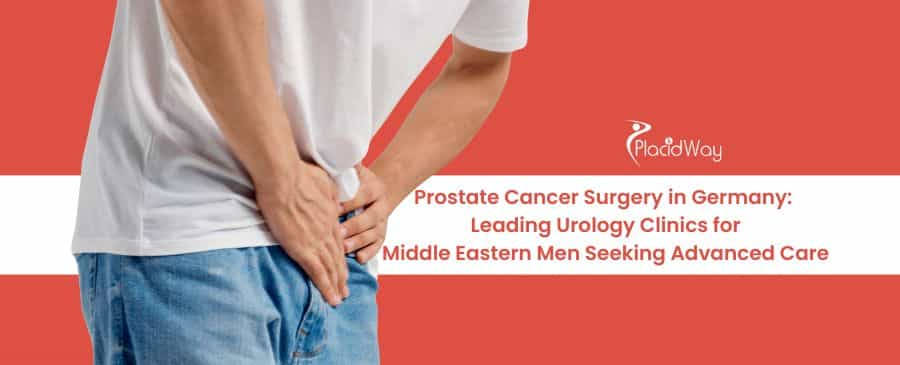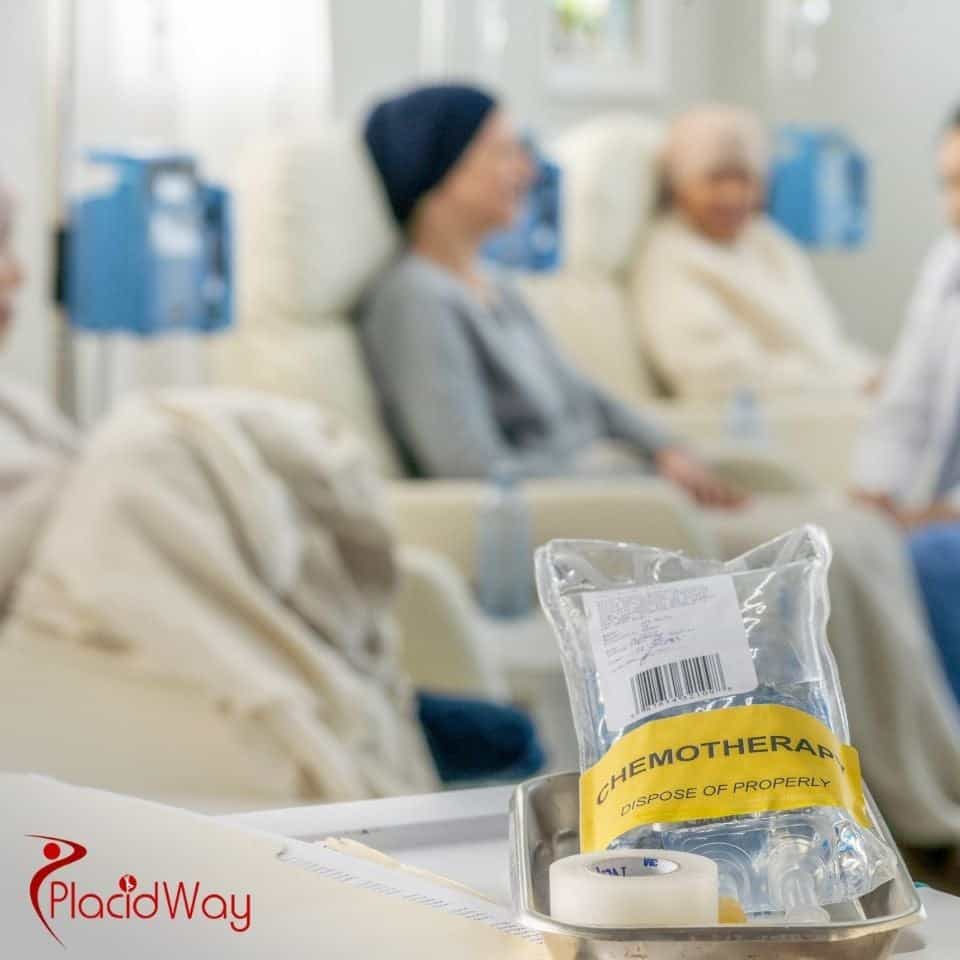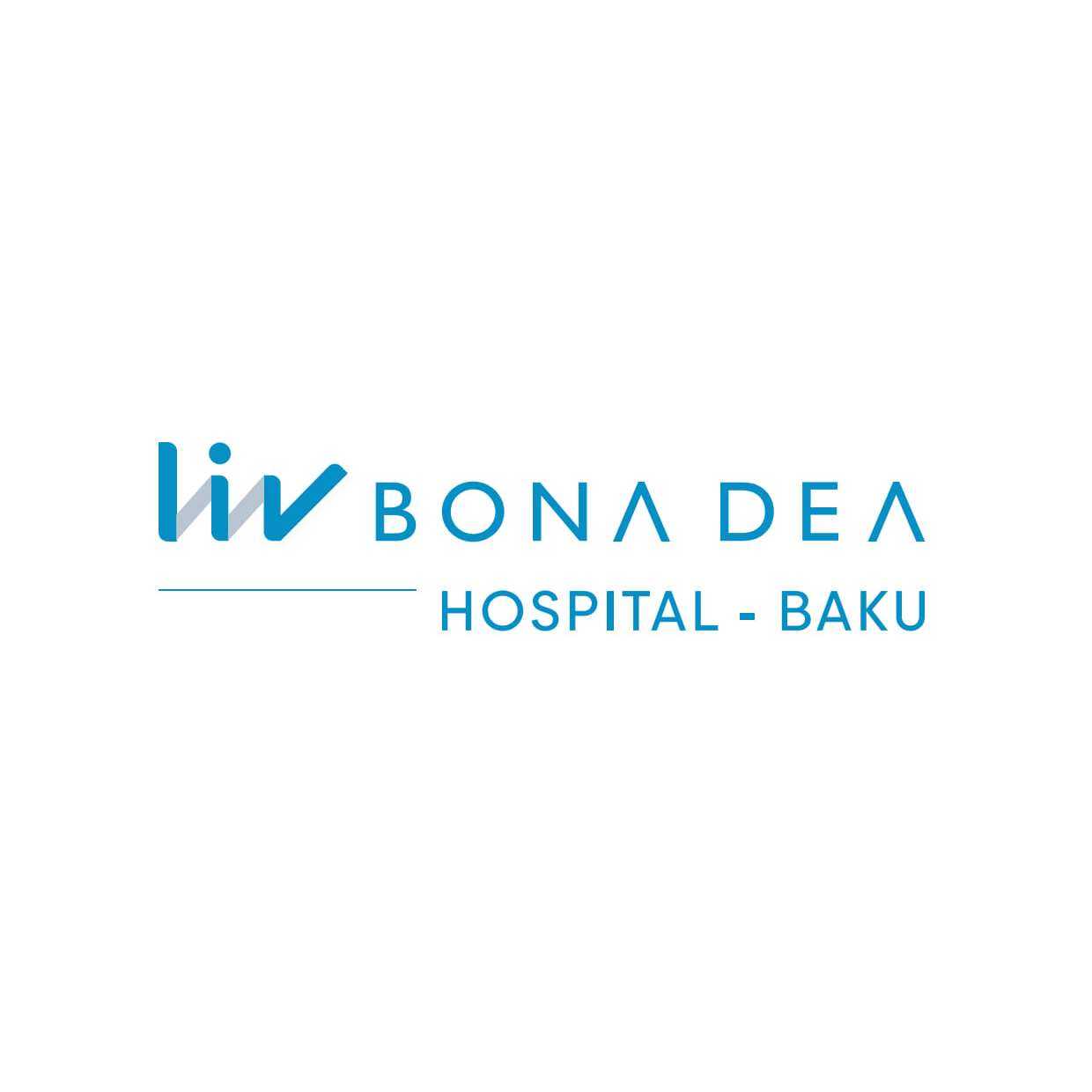
A diagnosis of prostate cancer is a life-changing event that demands the best possible care. For many men, especially from the Middle East, seeking treatment abroad opens the door to world-class medical excellence. Germany stands at the forefront of this field, renowned globally for its precision urology, pioneering surgical techniques, and exceptional patient outcomes.
German clinics offer a powerful combination of advanced robotic-assisted surgery, state-of-the-art diagnostics like the PSMA-PET scan, and a rigorous standard of care that prioritizes not just cancer removal, but the preservation of quality of life. This guide provides a comprehensive overview of what to expect from prostate cancer surgery in Germany, from leading clinics and advanced procedures to costs and the specialized support available for international patients.
Key Takeaways
-
German urology clinics have exceptionally high success rates for localized prostate cancer, often exceeding 95%, by utilizing advanced nerve-sparing techniques with the da Vinci robotic system.
-
Germany is a global hub for advanced diagnostics, with widespread access to the PSMA-PET scan, which provides superior accuracy for staging cancer and detecting metastasis compared to standard CT or MRI.
-
Clinics are highly experienced in catering to Middle Eastern patients, offering comprehensive packages that include Arabic-speaking coordinators, visa assistance, Halal food options, and private family-friendly accommodation.
-
Robotic Prostatectomy (Germany): €15,000 – €25,000
-
Robotic Prostatectomy (Turkey): €10,000 – €18,000
-
Robotic Prostatectomy (USA): $25,000 – $45,000+
-
PSMA-PET Scan (Germany): €5,100 – €7,780
Why Choose Germany for Prostate Cancer Surgery?
Germany is a world leader in urology due to its rigorous quality standards, pioneering use of cutting-edge robotic technology, and highly specialized surgeons for prostate cancer surgery. This trifecta results in outstanding clinical outcomes, particularly for complex procedures like radical prostatectomy, with a strong focus on preserving quality of life.
When facing a prostate cancer diagnosis, choosing a treatment destination is a critical decision. Men from the Middle East increasingly choose Germany for its unparalleled reputation in medical excellence. The German healthcare system is one of the world's most advanced, built on a foundation of precision engineering, rigorous scientific research, and stringent certification.
German clinics are often certified by the German Cancer Society (DKG) as "Prostate Cancer Centers." This certification is not just a plaque on the wall; it signifies that the clinic meets strict criteria regarding:
-
High surgical volume: Surgeons perform a high number of prostatectomies annually, leading to greater expertise and lower complication rates.
-
Multidisciplinary approach: Your case is reviewed by a "tumor board" of urologists, oncologists, radiologists, and pathologists to determine the absolute best treatment path.
-
Advanced technology: Certified centers are required to have the latest diagnostic and surgical equipment, such as the da Vinci Xi surgical system and PSMA-PET scan technology.
-
Quality of outcomes: The clinics must meticulously track and report their patient outcomes, including cancer control, incontinence rates, and erectile function preservation.
Understanding Your Diagnosis: The Key Numbers
Your treatment path, including the necessity and type of surgery, is determined by three key factors: your PSA level, your Gleason score from the biopsy, and the cancer's stage (whether it is localized or has spread).
Understanding your diagnosis is the first step toward effective treatment. Your urologist will talk to you about a few key indicators:
-
PSA (Prostate-Specific Antigen): This is a protein measured in your blood. A high or rapidly rising PSA level can be a sign of prostate cancer.
-
Gleason Score: This is the most important factor from your biopsy. A pathologist looks at the cancer cells and grades them on a scale of 3 to 5 (most commonly). These two numbers are added to get a score between 6 and 10.
-
Gleason 6: Low-grade, less aggressive cancer.
-
Gleason 7: Intermediate-grade.
-
Gleason 8-10: High-grade, aggressive cancer.
-
-
Cancer Stage (TNM Staging): This determines if the cancer is confined to the prostate (localized), has broken through the capsule (locally advanced), or has spread to lymph nodes or bones (metastatic). German clinics use advanced imaging like the PSMA-PET scan to get the most accurate staging possible.
Advanced Prostate Cancer Surgery Options in Germany
German urology centers overwhelmingly favor minimally invasive techniques that maximize cancer removal while preserving quality of life. The gold standard is the robotic-assisted radical prostatectomy, which has largely replaced traditional open and laparoscopic surgery.
While active surveillance (for low-grade cancer) and radiation are options, surgery remains the definitive cure for most localized prostate cancers.
Robotic-Assisted Radical Prostatectomy (da Vinci Surgery)
This is the most advanced and common surgical approach in Germany. The surgeon sits at a console controlling the arms of the da Vinci robot. This system is not automatic; it translates the surgeon's hand movements into micro-movements inside the body. Its benefits are transformative:
-
3D High-Definition Vision: The surgeon sees the prostate magnified 10-15x, allowing for incredible detail.
-
Enhanced Precision: The robotic wrists can rotate 540 degrees, far beyond human capability.
-
Nerve-Sparing: This precision is crucial for meticulously dissecting the prostate away from the delicate nerve bundles responsible for erectile function and the sphincter muscle controlling urinary continence.
-
Minimal Blood Loss and smaller incisions lead to a faster, less painful recovery.
Open Radical Prostatectomy
This is the traditional method, involving a larger incision in the lower abdomen. While still effective for cancer control, it is less common in Germany today. It may be reserved for very complex cases or if robotic surgery is not possible. Recovery is significantly longer, and the risk of side effects is generally higher.
Expert Insight
"The goal of modern prostatectomy isn't just to remove the cancer; it's to preserve the man. We call it the 'trifecta': 1. Cancer-free (undetectable PSA). 2. Full urinary control. 3. Potent erectile function. The precision of the da Vinci robot in the hands of an experienced German surgical team gives us the best possible chance to achieve all three for our patients."—Based on insights from leading German urologists.
Cost of Prostate Cancer Surgery in Germany
The cost for a robotic prostatectomy in Germany typically ranges from €15,000 to €25,000. This is a comprehensive price that often includes the surgery, diagnostics, surgeon's fees, and a 5-7 day hospital stay, offering exceptional value for world-class care.
While Germany is not the cheapest destination, it provides one of the best quality-to-cost ratios in the world. Patients from the Middle East or the USA often find they save significantly compared to home, without any compromise on technology or expertise.
A medical package in Germany for prostate cancer treatment typically includes:
-
All pre-operative consultations and diagnostic tests (bloodwork, ECG).
-
The radical prostatectomy procedure itself.
-
Anesthesiologist, surgeon, and full surgical team fees.
-
In-patient hospital stay (usually 5-7 days in a private room).
-
Post-operative medication and care during your stay.
-
Removal of the urinary catheter before discharge.
It often does not include the initial diagnostic PSMA-PET scan (which is a separate procedure), flights, or your hotel stay before and after hospitalization.
Comparative Cost of Prostate Cancer Treatments (Estimates)
| Procedure / Treatment | Germany (€) | Turkey (€) | USA ($) |
| Robotic Prostatectomy (da Vinci) | €15,000 - €25,000 | €10,000 - €18,000 | $25,000 - $45,000+ |
| PSMA-PET/CT Scan | €5,100 - €7,780 | €1,500 - €3,000 | $8,000 - $15,000 |
| Lutetium-177 PSMA Therapy (per cycle) | €8,000 - €12,000 | €6,000 - €10,000 | $15,000 - $25,000 |
| HIFU (High-Intensity Focused Ultrasound) | €16,000 - €22,000 | €12,000 - €18,000 | $20,000 - $35,000 |
Note: Costs are estimates and can vary based on the specific clinic, surgeon's prestige, and complexity of the case.
Top Urology Clinics in Germany
Germany's best urology clinics are certified by the DKG. These facilities are renowned for their high case volumes and expertise with international patients.
When researching, look for "Certified Prostate Cancer Centers" (Prostatakarzinomzentrum). This ensures the highest standard of care.
-
Masculine by Dr. Med. Aref Elseweifi: A leaading urology center in Berlin, Germany, specializing in prostatectomy, genital surgery and laser procedures by Dr. Med. Aref Elseweifi.
-
IMC Intermed-Consult: Located in Frankfurt Germany is one of the top healthcare providers for international patients who look for the best medical care abroad.
-
Kliniken Allianz Oncology Center: Bad Trissl Medical Centre is well-known as the first after-care clinic in Germany.
Your Journey: What to Expect Before, During, and After
Your medical journey is a structured process involving remote consultation, arrival for final diagnostics, the minimally invasive surgery, and a short, monitored hospital recovery followed by a brief outpatient period before you fly home.
Step 1: Remote Consultation & Planning
Your journey begins from home. You will send your medical records, biopsy reports (with Gleason score), and PSA history to your chosen clinic or medical tourism partner. A German professor or senior urologist will review your case and provide a preliminary treatment plan and cost estimate.
Step 2: Arrival and Pre-Operative Diagnostics
You will typically arrive in Germany a few days before your scheduled surgery. During this time, you will:
-
Meet your surgeon for a detailed consultation.
-
Undergo final pre-operative tests, which may include bloodwork, an MRI, or a PSMA-PET scan if not already done. This scan is crucial for confirming the cancer has not spread.
Step 3: The Surgery and Hospital Stay
The robotic-assisted radical prostatectomy itself takes approximately 2-4 hours. After the procedure, you will recover in the hospital for about 5 to 7 days. This is longer than in some countries because German protocols emphasize safety and ensuring you are stable before discharge. You will have a urinary catheter in place, which is standard after this surgery.
Step 4: Recovery and Flying Home
The catheter is usually removed before you leave the hospital. Your team will ensure you can urinate on your own. It is highly recommended to stay in a hotel near the clinic for another 7 to 10 days for a final follow-up and to ensure you are fit to travel. Most patients are cleared to fly home about 2-3 weeks after their surgery.
Did You Know?
Germany is a pioneer in "theranostics," particularly Lutetium-177 PSMA therapy. This is a revolutionary treatment for advanced, metastatic prostate cancer that has stopped responding to other treatments. It uses the same PSMA target as the diagnostic scan to deliver precise, targeted radiation directly to cancer cells anywhere in the body, with minimal side effects.
Tailored Support for Middle Eastern Patients
Leading German hospitals are exceptionally well-equipped to welcome patients and families from the Middle East. They provide dedicated services to ensure your experience is comfortable, respectful, and logistically seamless.
German clinics understand that traveling for medical care is stressful. To support patients from Saudi Arabia, UAE, Qatar, Kuwait, and across the region, they offer:
-
Dedicated International Offices: These are your primary point of contact. They are staffed by multilingual coordinators, often including Arabic-speaking personnel.
-
Visa Assistance: The hospital will provide a formal letter of invitation and treatment plan to support your Schengen Medical Visa application for you and any accompanying family members.
-
Cultural and Dietary Needs: Halal food is readily available upon request. Most hospitals also provide access to prayer rooms and ensure patient privacy.
-
Family Accommodation: Hospitals can help arrange comfortable, private rooms or nearby hotel/apartment accommodation for family members who travel with you.
-
Transparent Billing: You will receive a clear, itemized cost estimate in advance, and the international office can coordinate with insurance providers or government health offices.
Frequently Asked Questions (FAQs)
What is the success rate of robotic prostatectomy in Germany?
For localized prostate cancer, the 10-year disease-free survival rate in top German centers is over 95%. The "success" in preserving urinary continence (over 90%) and erectile function (60-80%, depending on patient age and nerve-sparing) is also among the best in the world.
How long will I need to stay in Germany?
You should plan for a total trip of about 3 weeks. This includes a few days for pre-op tests, a 5-7 day hospital stay, and a 7-10 day recovery period in a nearby hotel for a final check-up before your long flight home.
What are the main side effects of prostate cancer surgery?
The two primary concerns are urinary incontinence (leakage) and erectile dysfunction (ED). The use of nerve-sparing robotic techniques dramatically reduces these risks. Most men regain full urinary control within a few weeks to months, and erectile function can also recover over time, often with the help of medication.
Is robotic surgery better than open surgery for prostate cancer?
Yes. For the patient, robotic surgery offers significantly less pain, minimal blood loss, smaller scars, a shorter hospital stay, and a faster return to normal activities. Most importantly, it allows the surgeon greater precision for nerve-sparing, which improves your chances of maintaining continence and erectile function.
How soon can I fly after a robotic prostatectomy?
Most surgeons recommend waiting at least 1-2 weeks after hospital discharge before taking a long-haul flight. This is to reduce the risk of blood clots (DVT) and to ensure you are healing well. You will be encouraged to walk frequently on the plane.
What is a PSMA-PET scan, and do I need one?
A PSMA-PET scan is the most advanced imaging test for prostate cancer. It is incredibly sensitive and can detect tiny clusters of cancer cells that standard CT or bone scans might miss. German clinics use it to:
-
Initially stage the cancer to see if it has spread.
-
Check for recurrence if your PSA rises after treatment.
-
Guide targeted therapies like Lutetium-177.
Your Path to Advanced German Urology with PlacidWay
Navigating a cancer diagnosis and international treatment can be overwhelming. You don't have to do it alone.
PlacidWay is your trusted partner in connecting you with Germany's leading urology and prostate cancer centers. We bridge the gap, providing you with:
-
Verified Clinic & Surgeon Profiles: Access to Germany's most respected urologists.
-
Comparative Quotes: Receive transparent, all-inclusive treatment packages from multiple certified hospitals.
-
Seamless Coordination: We assist with medical record transfers, remote consultations, and scheduling.
-
Full Travel Support: From visa invitation letters to booking accommodation and arranging airport transfers, we manage the logistics so you can focus on your health.
Don't Leave Your Health to Chance
Contact PlacidWay today for a free, confidential consultation and take the first step toward world-class prostate cancer care in Germany.


.png)
.png)












Share this listing